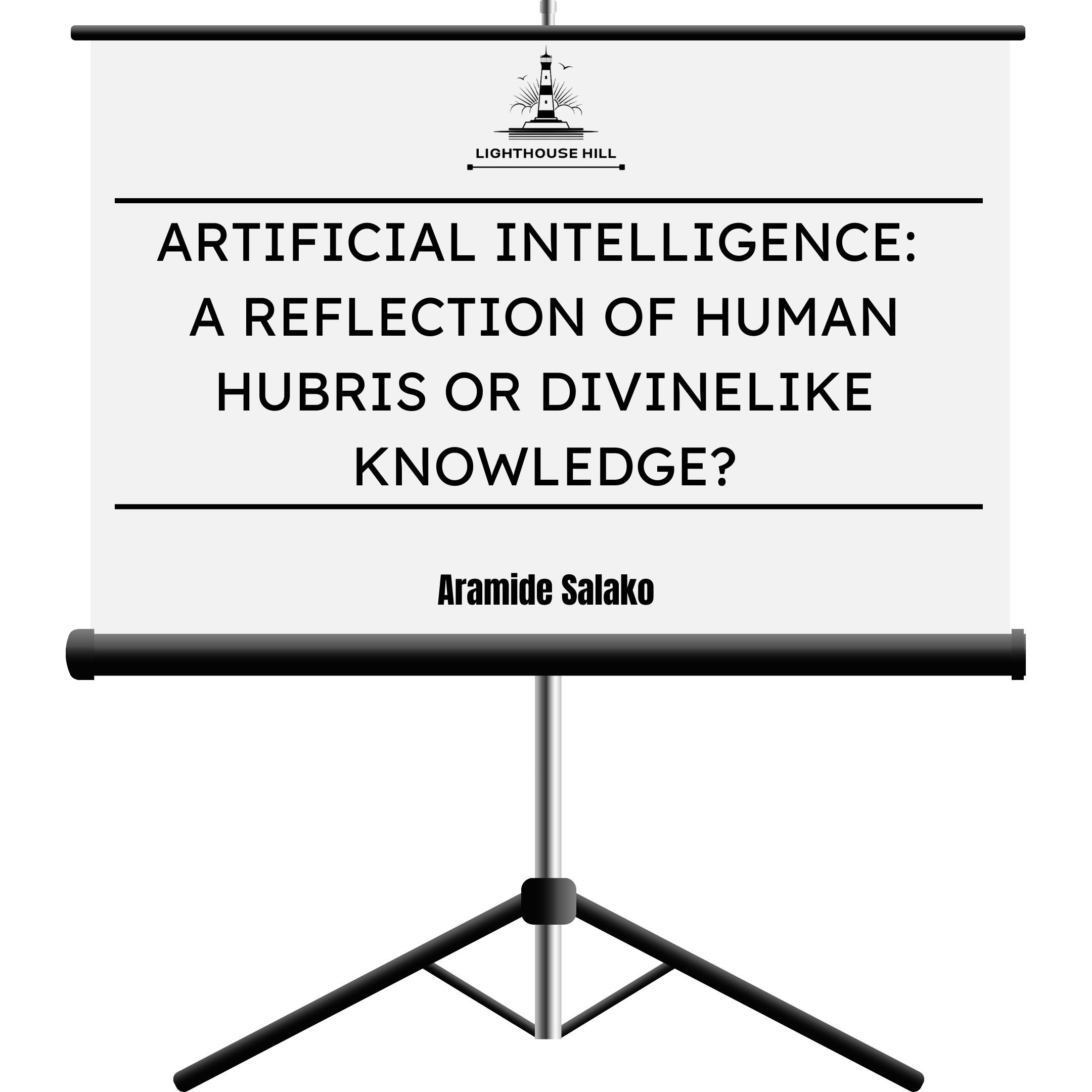
DISPENSATIONS, EPOCHS, ZEITGEISTS
Ever since mankind regrouped as one entity after the Great Flood, human technological innovations have spiralled from one civilisation to the other. The creative potentiality of mankind, propelled by an inward desire for self-government, has been a generic and singular fact of earthly occupation. Across the broad expanse of social life and the timeless continuum of preordained existence, the human species has timelessly progressed as an agency of change.
From the Bronze Age to the Iron Age, Classical Era, Medieval Era, and Early Modern Era to the Modern Era, the need for humans to have an upgraded implement of utility has remained ever persistent. Out of brute necessity, iron will, or sheer genius, something always drives the man to create. And to innovate upon past creations. For how else must he survive the demand of the times? Or, better still, outlive it?
The 6000-year historical timeline of the world is dotted with a plethora of inventions and innovations, varying in relevance and sophistication, publicising the ubiquitous God-given essence to man: being. God made man in his image and likeness, and thus, man acts like God in image, likeness, and volition.
“26 And God said, Let us make man in our image, after our likeness: and let them have dominion over the fish of the sea, and over the fowl of the air, and over the cattle, and over all the earth, and over every creeping thing that creepeth upon the earth. 27 So God created man in his own image, in the image of God created he him; male and female created he them. 28 And God blessed them, and God said unto them, Be fruitful, and multiply, and replenish the earth, and subdue it: and have dominion over the fish of the sea, and over the fowl of the air, and over every living thing that moveth upon the earth.”
Genesis 1:26-28 KJV.
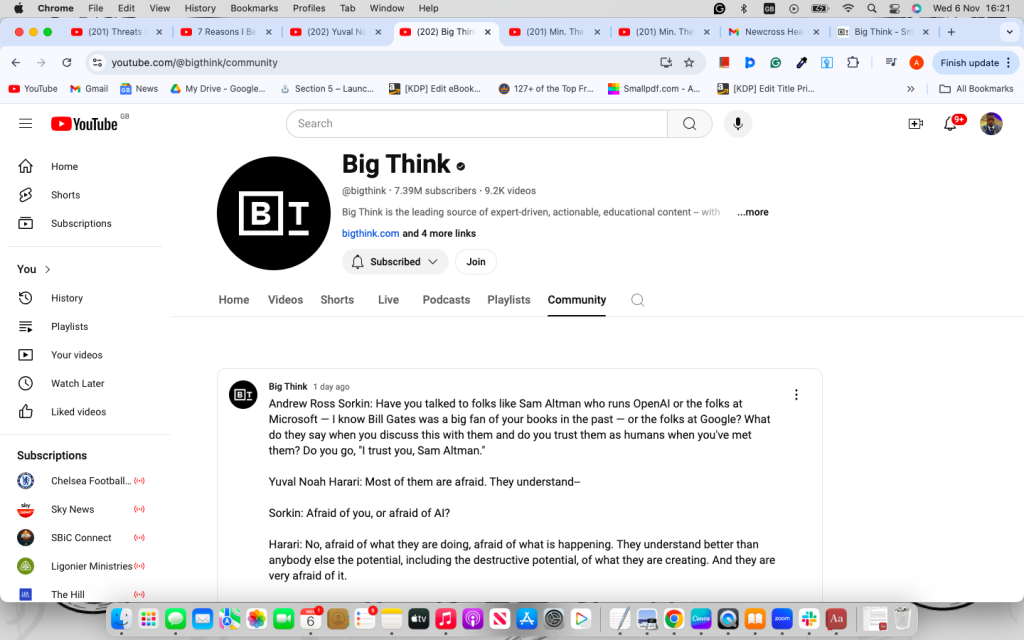
PHILOSOPHICAL UNDERPINNINGS
But Adam & Eve’s sin brought about an abrupt interruption to God’s original intention, which was to have divinity and humanity correlate in earthly participation according to God’s design. The 4 Hydra nemesis of violence, corruption, evil & death became terrible offshoots from that Edenic separation from God. Man’s choice to eat out of the Forbidden Tree of the Knowledge of Good & Evil has become his fate. What fate? The desire to always want to discover, with the simplicity of choice, the complexity of blessings and/or misfortunes that come in the process and finality of making a vainglorious discovery.
So, why the context, you may ask? To drive home the point that the self-will agency of man, devoid of God, will always tend towards creating an autonomous state of being. Either through goodwill or utter malevolence, the impulse to have authority and power in governance, commerce, science, architecture, or any other aspect of the faculty world is an everpresent motivating force of human will.
Also Read: ARTIFICIAL INTELLIGENCE AND THE IMAGE OF GOD: MAN’S TECHNOLOGY VERSUS GOD’S CREATION
To conquer or be conquered, a necessity is laid upon each human to adapt, advance and acquire a measure of independence that sets one above or apart from others. That way, one’s lot in life might become more palatable than the prevailing status quo at the bottom rung of the hierarchy. And, more importantly, to reach the zenith of the state of affairs where reverence and tributes are paid to the principal king(dom), e.g. Caesar of the Roman Emperor or a select authority, e.g. The United States Cabinet.
Going back to Genesis, we find no greater evidence of man’s inner longing for independent rulership than in the Tower of Babel Story outlined in Chapter 11. Here, we find a single population of mankind, led by Nimrod, compelled by one purpose: to build a city that rises unto heaven.
“And they said, Go to, let us build us a city and a tower, whose top may reach unto heaven; and let us make us a name, lest we be scattered abroad upon the face of the whole earth.”
Genesis 11:4 KJV.
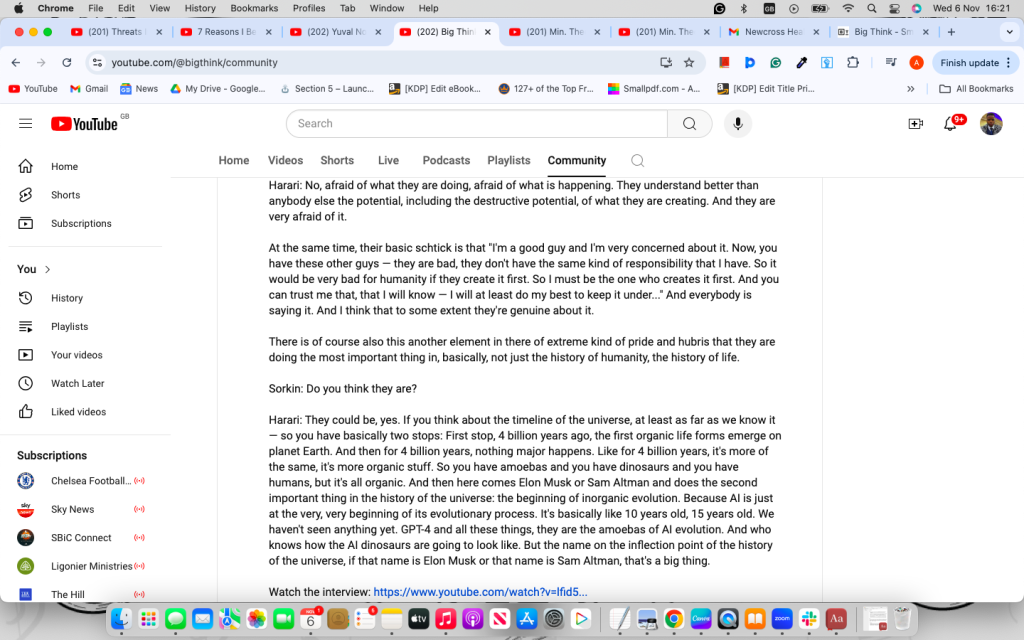
This move was not only a direct defiance of the commandment God gave to man, as reflected in Genesis 1:28, but, even worse, a great show of a wilful command and self-absorbed ambition to accomplish a common goal apart from God. This was mankind discovering in-built powers of the will in their mortal carriage, the potentiality to have a thing decreed and see it established and have the light shine upon their ways without seeking the consent or getting the approval of God.
This particular project was, of course, overruled by the Sovereignty of the Elohim Counsel. The language of the people was confounded, and therefore mankind was scattered abroad according to the original plan of God.
But bear in mind this vital point: If, by human will, mankind could build a City of Babel that directly contradicts God’s Law in the Creation Era, how many more of such creations would man have accomplished solely based on self-will, 5000 years later? And how do you tell apart an act of creation governed by human will from an act inspired by divinelike promptings? Ultimately, how do you use the arbiter of God’s Sovereignty to judge and adopt earthly matters while yet obeying God’s commandments?
This leads us to the curious case of Artificial Intelligence in the Post-Modern Age.
According to Live Science, some of the best inventions to change the world in 6000 years include the Wheel, Printing Press, Penicillin, Compass, Light Bulb, Telephone, Internal Combustion Engine, Vaccines, Use of Fire, Magnifying glass, Batteries, Airplane, Internet, Nuclear Energy etc. In the long haul, the aggregate potentiality of these inventions might pale in comparison to the unitary potency of Artificial Intelligence.
Why? A fully automated, self-aware AI body would easily overpower and annihilate a human-led organised system of defence. Or is this beyond the boundary of possibilities? Is that not what the future of AI portends? This possibility was perfectly illustrated when IBM’s supercomputer Deep Blue defeated Garry Kasparov, the highest-ranked Chess Grandmaster, on May 11, 1997. That was 27 years ago – more than two decades later, machines are infinitely more powerful than IBM’s Deep Blue, and frankly, the mass of humans in our postmodern world are not any smarter than Garry Kasparov. This is the intriguing dilemma of AI before us today.
THE AGE OF ARTIFICIAL INTELLIGENCE
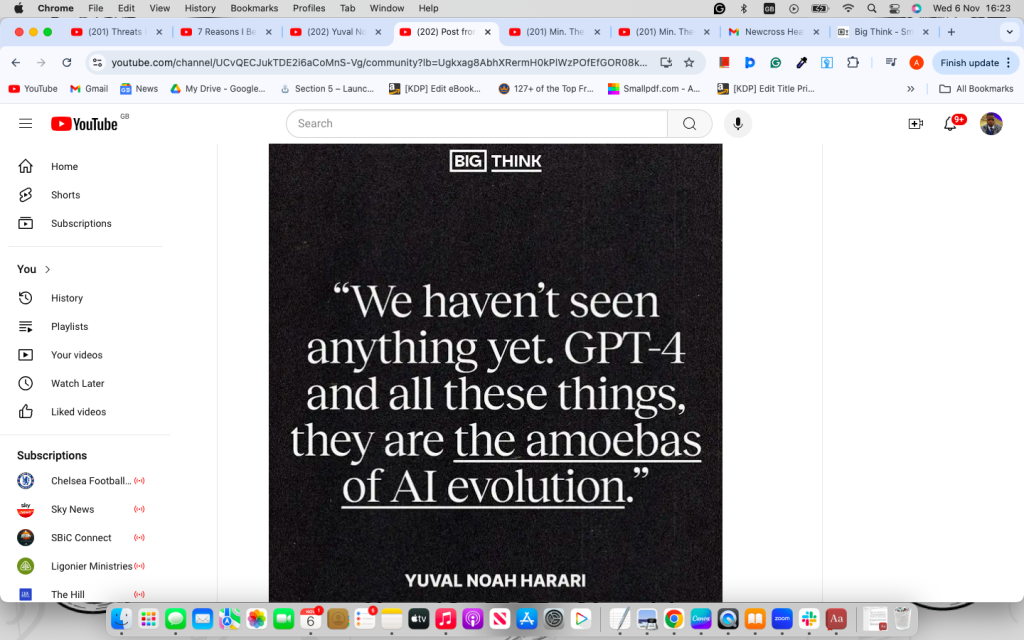
So what is Artificial Intelligence and why must we, the image-bearers of God, pay keen attention?
First, a workable definition.
Artificial Intelligence may well be defined as the advancement and investment of computational potencies in an inorganic stream of ultra-definitive computerized networks created by an exclusive class of humans to purposely use technology to connect, imitate, assist, and accelerate human functionality, association, intelligence, growth, and facilitation of transhuman development across a wide spectrum of realities.
The grim reality and latent potentiality of an AI-defined world are incredibly compelling. Never before in human history has a manmade invention inspired such awe and dread at once. The reason is not far-flung. Beyond the equipment and empowerment of robotic entities such as Sophia, Digit, Atlas, Ameca, and Tesla Robots, displaying lifelike, anthropomorphic and yet sci-fi features, which in itself is astounding, more humbling is the fact that AI chatbots like ChatGPT, Google Gemini, Claude, Meta AI, and the likes can write a more original, cogent school essays than the average A-class college students.
When human intelligence is gladly bequeathed to AI, you begin to see the inevitable repercussions. On the one hand, you see the joy derived from the thrilling accomplishment of impossible tasks by AI programmes [the awe], on the other hand, you see the universal drain of intellectual capabilities of young, fertile humans [the dread].
When you also consider the fact that the several types of Artificial Intelligence in use today, namely, Narrow AI, Machine Learning, Generative AI, Robotics, Deep learning, et al., are specialised AI pieces of machinery branching into various fields of human endeavour to augment component and aggregate functionality, it begins to dawn on you how and why Artificial Intelligence is the most awe-inspiring and equally most terrifying state-of-the-arts technology ever designed by man.
Charles Dickens’s famous opening lines, “It was the best of times, it was the worst of times, it was the age of wisdom, it was the age of foolishness.” in the historical novel – A Tale of Two Cities, could not have found a more befitting zeitgeist of profound parallel than the present epoch. Principally, the message you get from the mass media is that AI has come to fast-track the evolution of mankind to its apex level of optimal performance – the state of full autonomy where mankind, as a species, has become a demigod that poverty, health maladies, or death cannot touch.
In truth, the dawn of the Age of AI seems to have occasioned the surrender of man’s most significant divine essence [the creative will] to a livewire AI ecosystem of untold powers. It appears that the true cost of exchanging man’s core spiritual essence for man’s transhuman possibilities is only about to be realised.



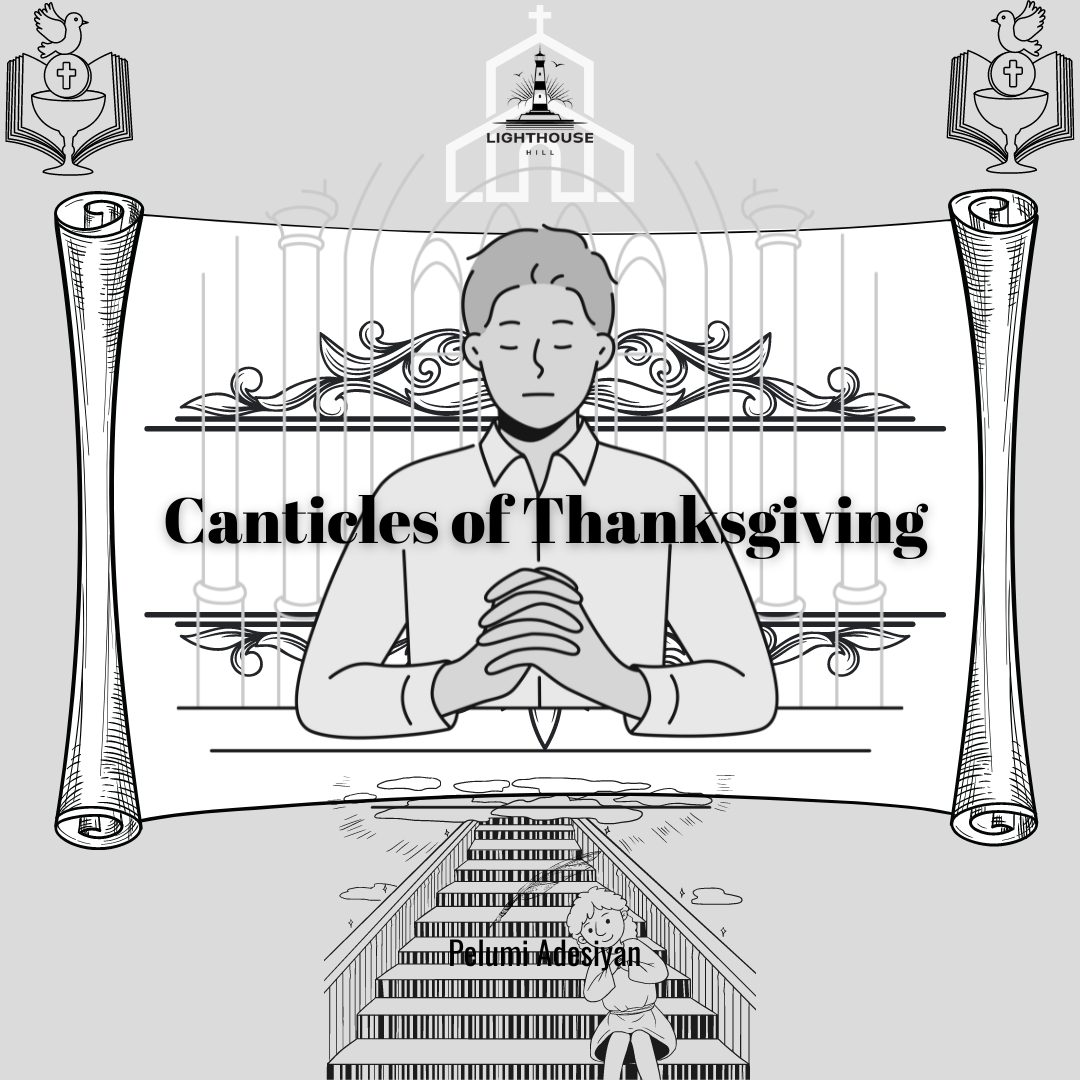
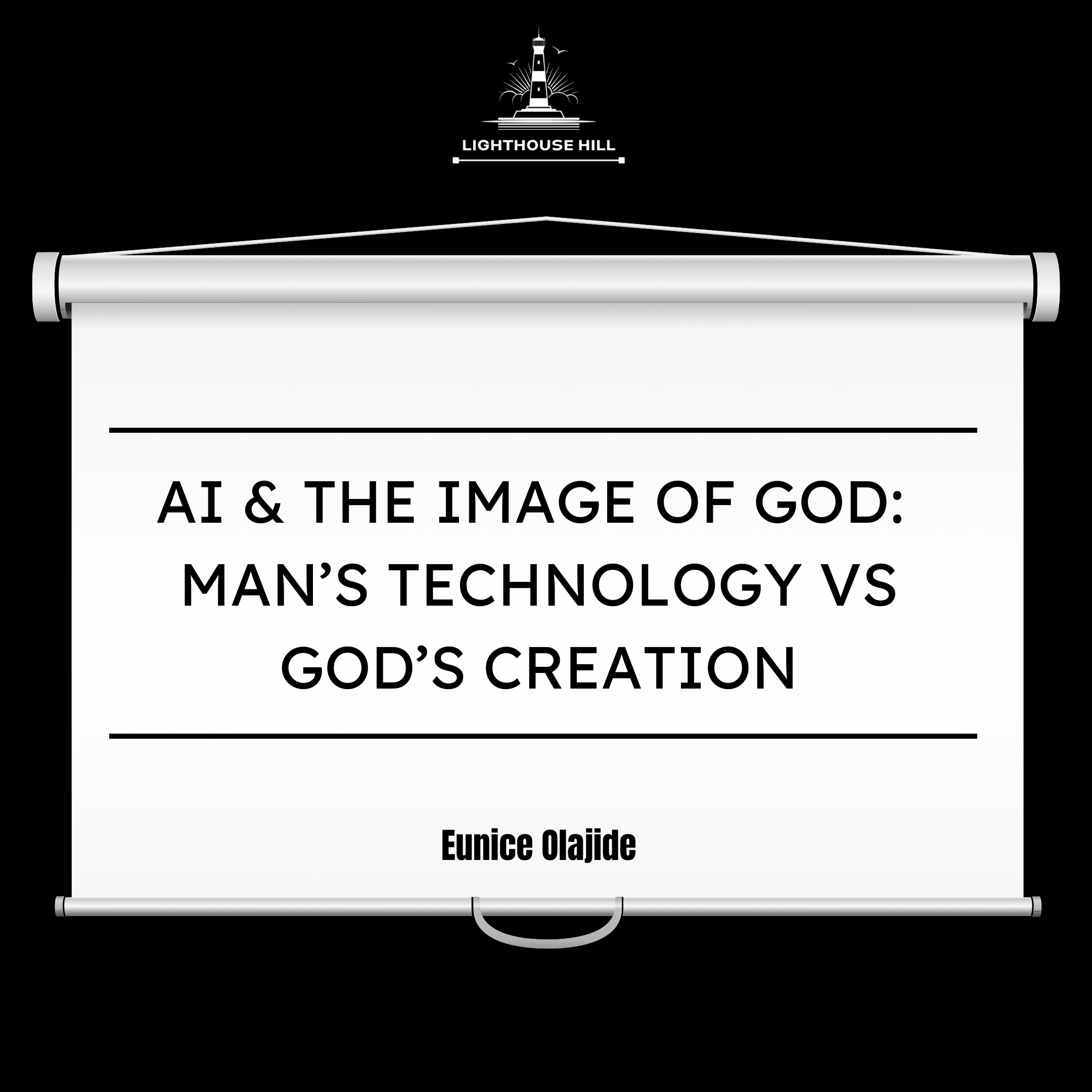

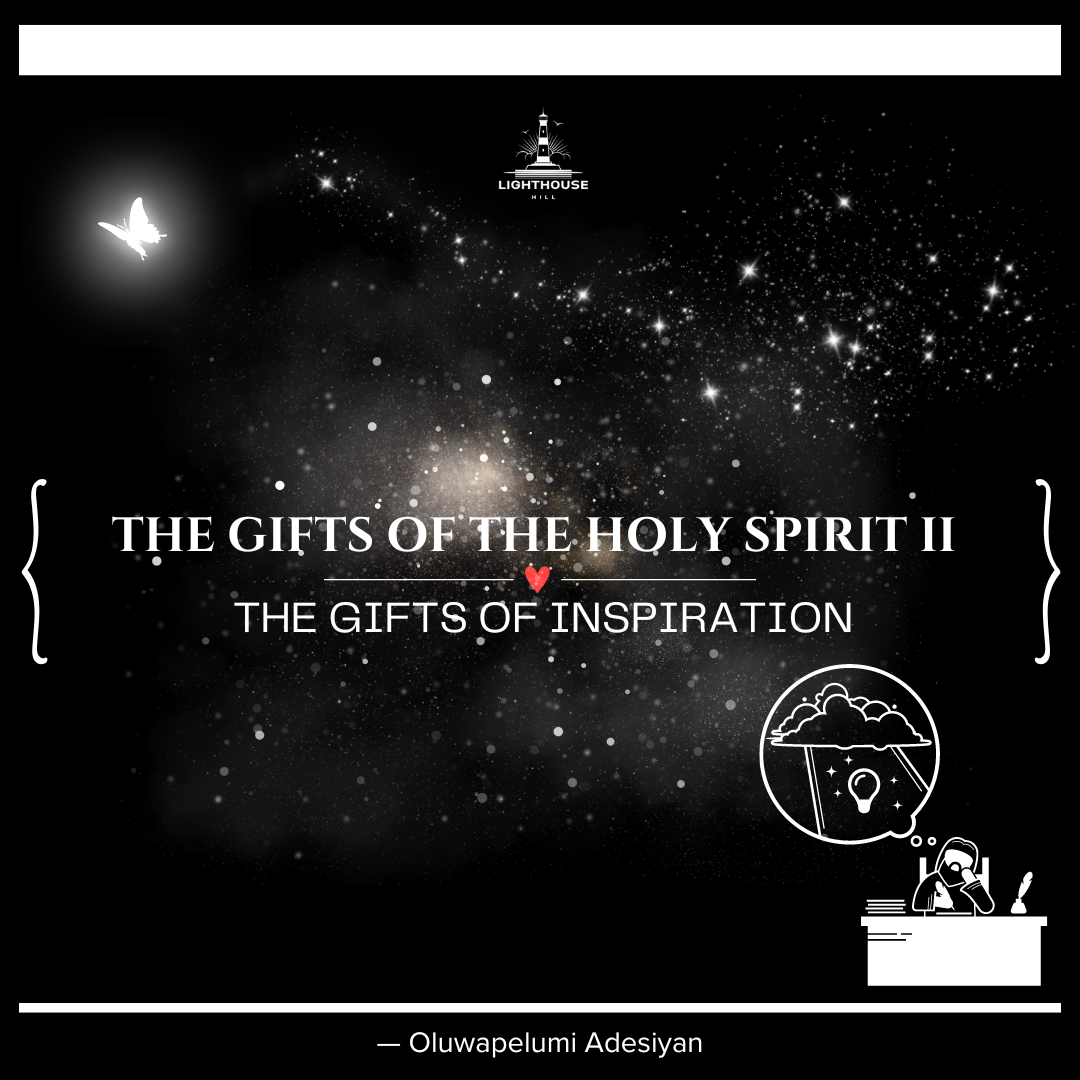





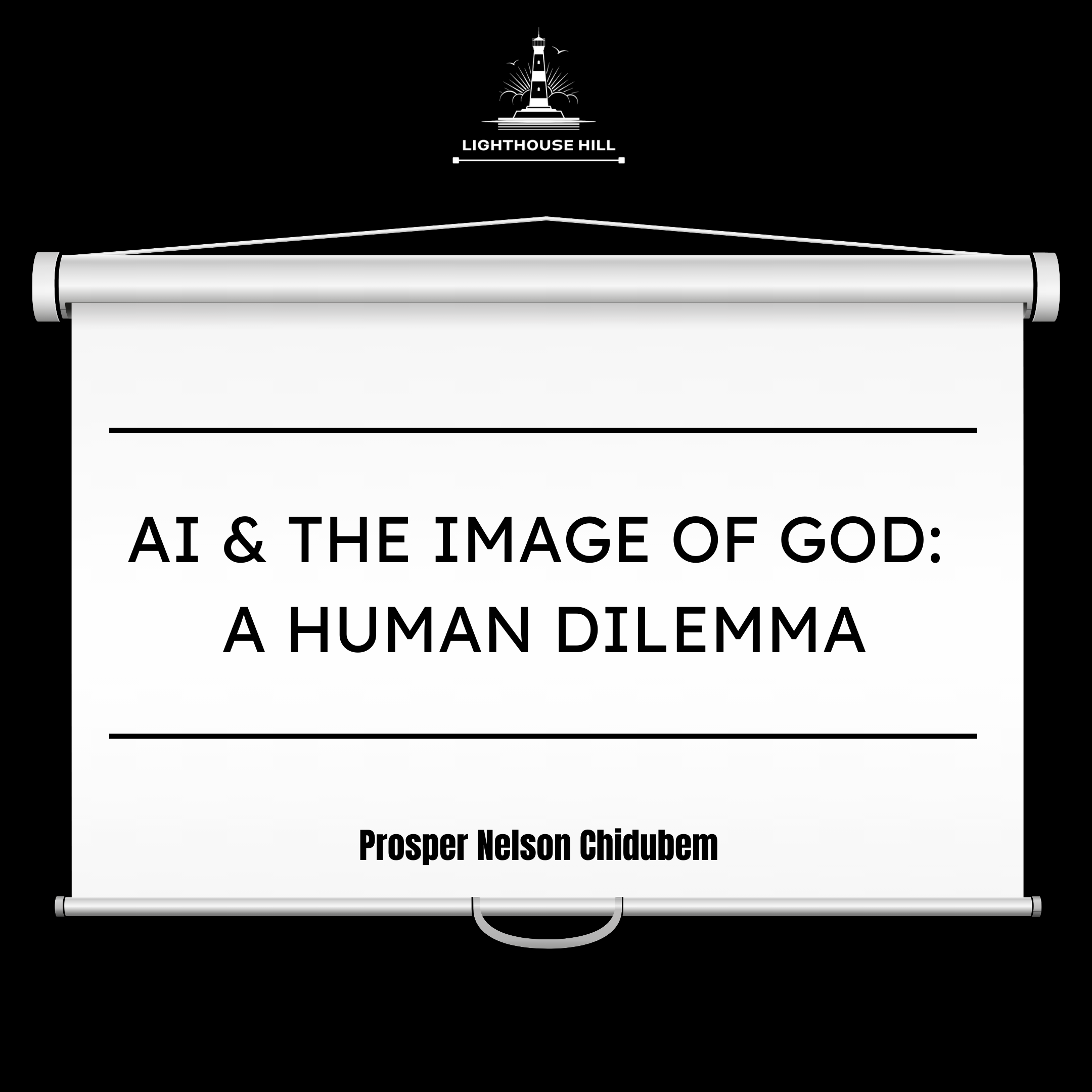
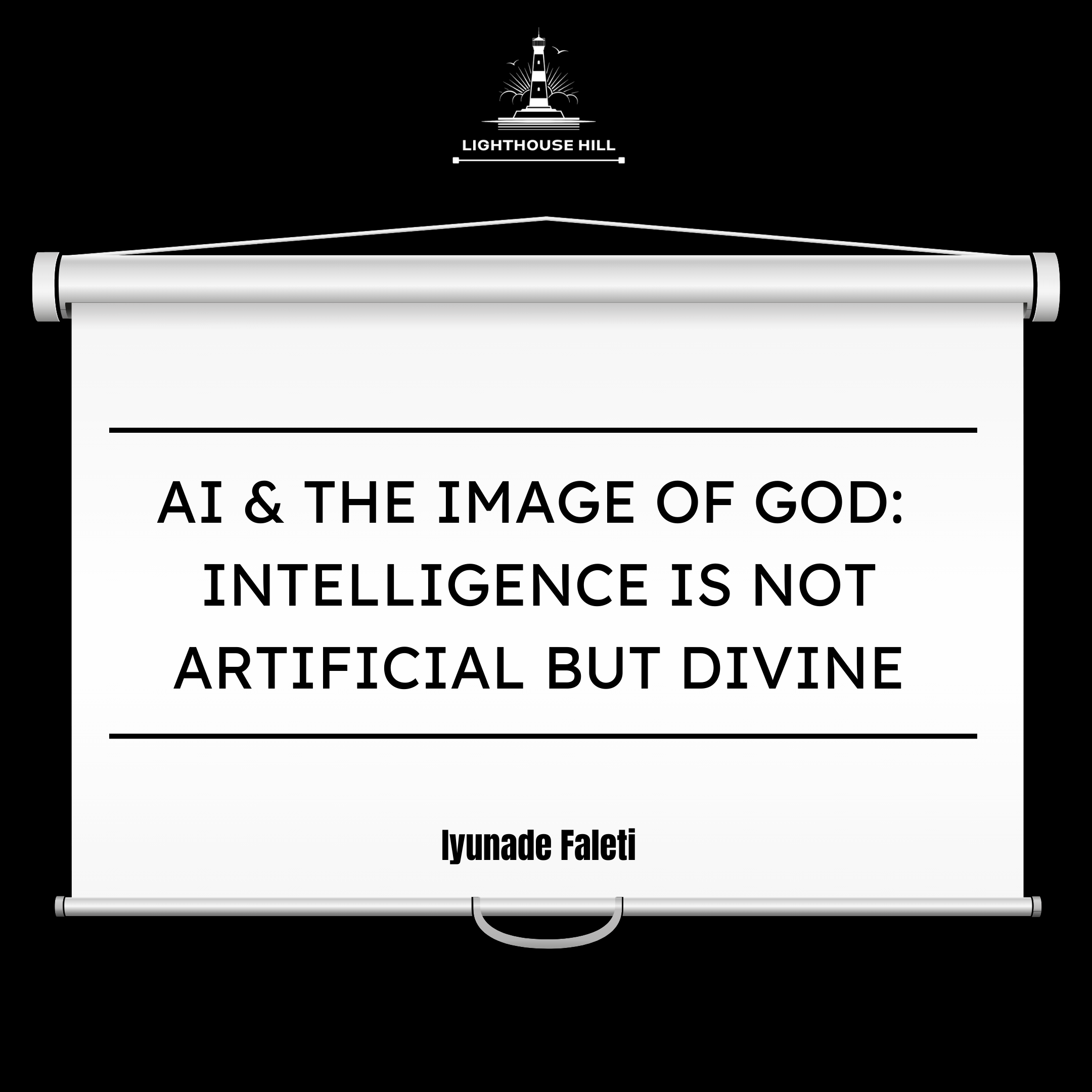
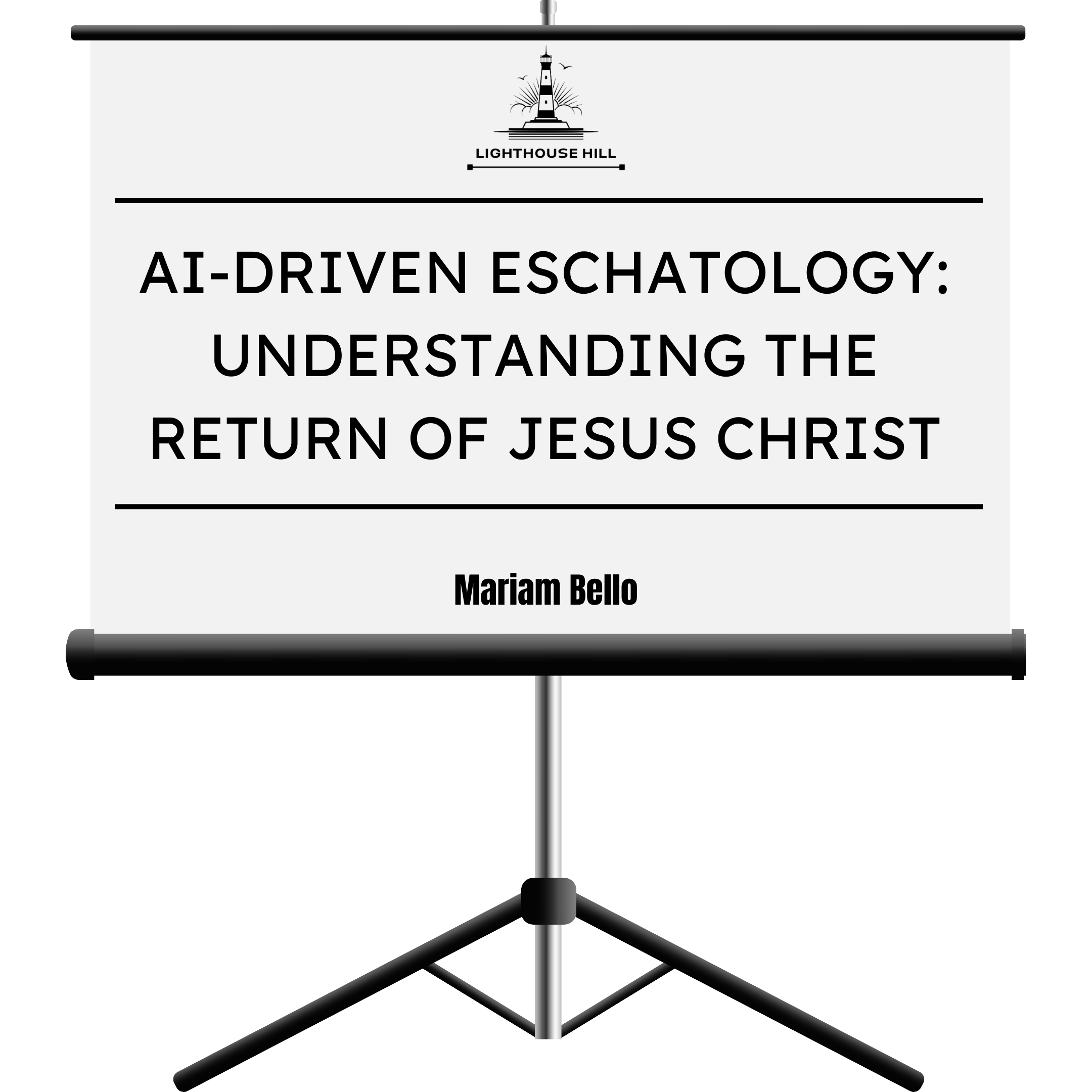

I’m blown away. The flow of thought in this piece is top-notch. We need to go back to the drawing board because the essence of man is about to be realised even in this AI age. This piece for me, restructured my perception and answered my questions about the post-modern age. God bless the author.